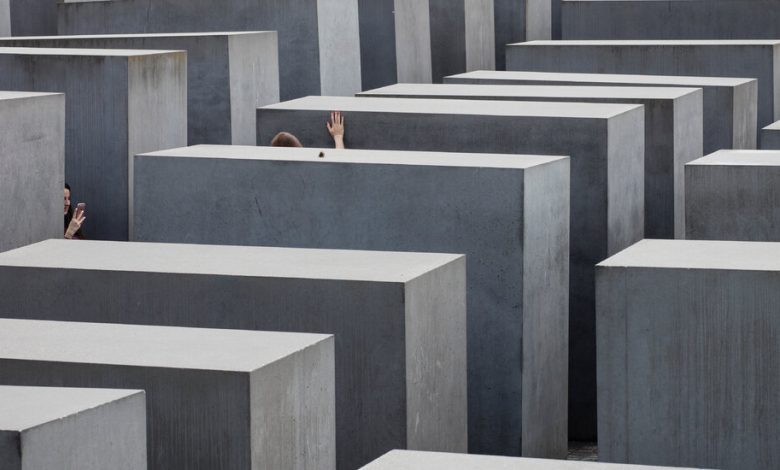Ukraine, Gaza and the Long Shadow of German Guilt

OUT OF THE DARKNESS: The Germans, 1942-2022, by Frank Trentmann
“Stalingrad” is what Germans talked about as they settled down for coffee and cake on Sunday afternoons in the first five decades after World War II — the “bitter fate” of prisoners in Soviet camps, the five million German soldiers who lost their lives in the wider conflict, and the widows and orphans they left behind. They brought up “Dresden” and the 20 million people who had lost their homes in the Allied bombing. Almost every family told stories of one of the 12 million refugees who fled the Red Army’s advance or had been expelled from the eastern territories, from Breslau, Danzig and Königsberg. One after another, they followed paths of self-pity.
“Everything that the German Volk did to the Jews,” a liberal justice minister told an audience of Jewish attorneys in 1951, “happened to itself.” War stories gathered up victims, all of whom, on both sides, deserved “the same high degree of care,” a Bavarian assembly president insisted. Few of the Sunday coffee visitors saw Allied victory as liberation or fully recognized the grave injuries German soldiers had inflicted on Europe’s civilians across what The New York Times called “the new dark continent.”
This attitude did not hold forever. In the remarkably rich “Out of the Darkness,” the historian Frank Trentmann tracks the “moral transformation of Germany,” from the Battle of Stalingrad in the early 1940s right through debates about Germany’s historical responsibilities in the wake of Vladimir Putin’s invasion of Ukraine eight decades later. In a country where the austere concrete slabs of “Memorial to the Murdered Jews of Europe” anchor the capital complex that surrounds the old Berlin Wall, World War II casts a very long shadow.
The tense debate over whether the country that started the Second World War should send arms to Ukraine — whether it should confront Russia or appease Putin and avoid any whiff of militarism — is only one in a series of dramatic developments shaping the nation’s temper. Just this century, the country has seen the near bust-up of the European Union over Greek debt after the global financial crisis of 2008; the absorption of hundreds of thousands of migrants from the Middle East, Africa and South Asia in 2015; and the entry of the far-right Alternative for Germany into Parliament in 2017. For the last 80 years, Trentmann writes, all aspects of life from family to work to the environment have been debated in terms of right and wrong, featuring “conflicts about guilt, shame and making amends.” Paradoxically, reunification in 1990 stirred up rather than settled questions about who Germans have been and how they should shape their future.
As the damage of a lost war became clear and hunger spread, most German citizens saw their own hardship first. “In July 1946,” Trentmann notes, “the average German man in his 20s weighed 130 pounds. By February 1948, that had dropped to 114 pounds.” But the poker game of who suffered most gradually gave way to a more broad-minded accounting of responsibility and obligation. In West Germany, a massive redistribution of state resources in the early 1950s recognized the general claims of Jewish Germans and other survivors of the Holocaust. Germany’s restitution remains incomplete, but “never in the history of the world,” Trentmann emphasizes, “has a state been so generous to its victims.”
The public debate “between those clinging stubbornly to the idea” that World War II had been a “regular war,” he writes, and “those seeking to confront the past” structured civil society. By the mid-1950s, a protest culture made up of students and trade unionists opposed the establishment of a new German army and demonstrated against lenient sentences for war criminals. On Saturday mornings, information booths set up by citizen activists dotted market squares across Germany.




